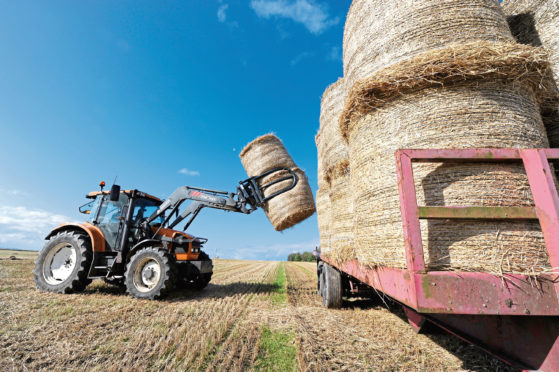Frustration is building on farms as the sowing of autumn crops is delayed and growers look for a break in the weather to complete 2019’s stop-start harvest.
After an outstanding start to harvest, the interruptions caused by wet weather are having an impact on the quality of crops still in the ground, with producers reporting sprouting and skinning in grains.
Meanwhile, the Farm Advisory Service (FAS) has warned about the dangers posed by heavy straw bales after twice the normal rainfall fell last month in many parts of the country.
NFU Scotland combinable crops chairman Ian Sands said: “There have already been a number of rejections for malting, and any barley not cut by now could be at risk.
“Similarly, a lot of oats are not good with some horror stories going around about oat crops still to be harvested and the weather still not picking up.”
In Orkney, farmer Alan Corrigall said 50% of the barley area had been cut but only 10% of straw baled.
He added: “A lot of the remaining area to cut is severely lodged and needing a few days’ sun and wind before the combines can tackle them.”
The warning about heavy bales came from Craig Bothwell of SAC Consulting, which delivers the FAS programme.
He said 50mm of rain could add 50kg or more to the weight of a 1.2m round bale and the additional weight in one area can make bales unstable when stacking and carting.
He advised handling any straw bales which were rained on in the same way as wrapped bales of silage.
FAS also advises against overloading trailers or building stacks too high, and ensuring bales are tied into the load and each load is fully strapped.
Other advice includes restricting loads to two bales high and making stacks one layer less, ensuring bale stacks are on a flat, firm and well-drained base to avoid water undermining and causing a collapse, and avoiding climbing on stacks.
